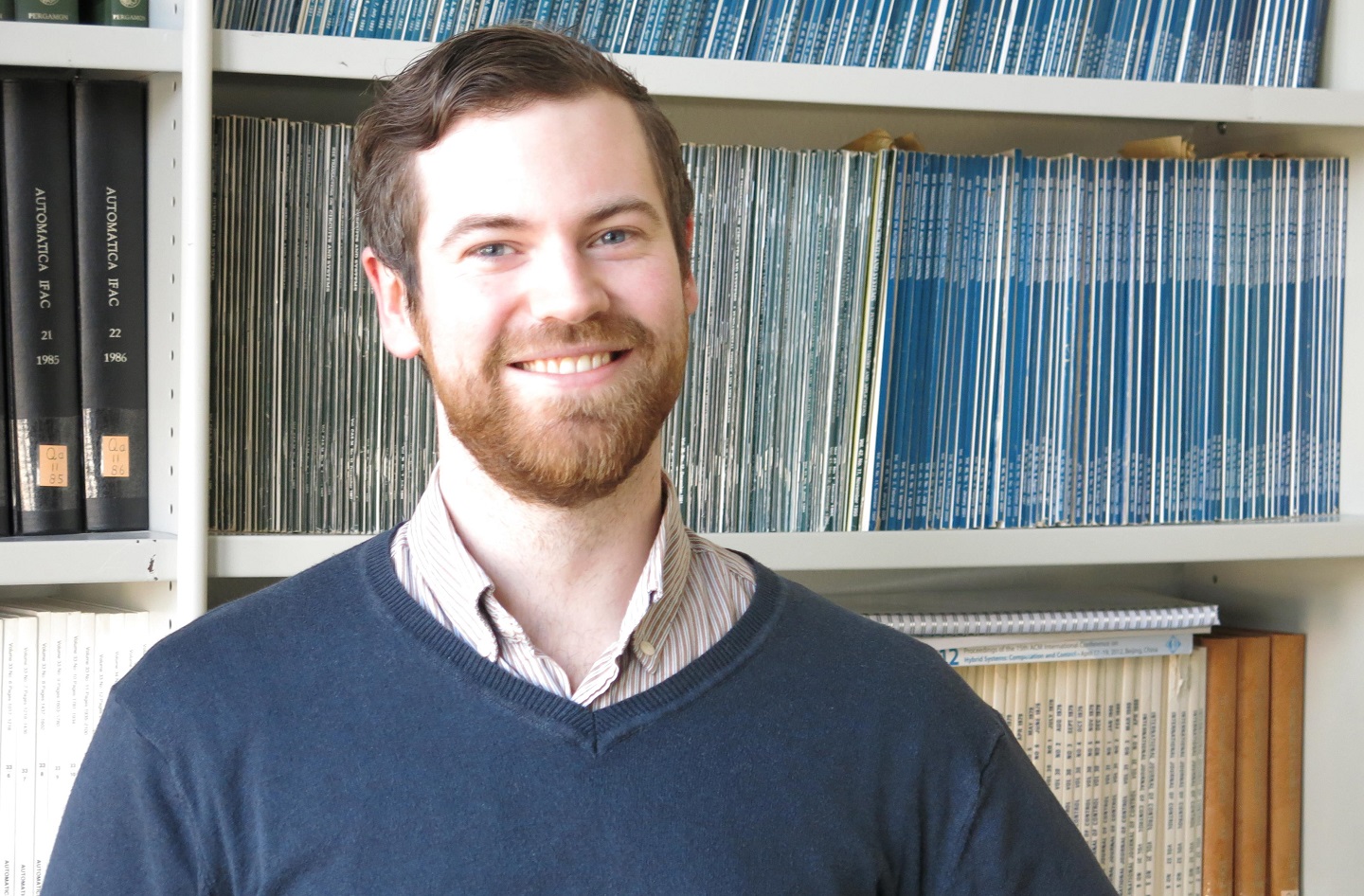PhD candidate Dean Wilding’s research takes microscopes to a whole new level. Using light and a smart optics system, the future applications for medicine and biology look promising.
Dean Wilding: “People really want to be able to look at stuff as it is.” (Photo: Heather Montague)
“I’m from England and I’ve been here nearly three and a half years, so I’m nearing the end of my PhD. I have the draft so I’m hoping I’ll be done before the summer. My wife is pregnant with our first child and the baby is due in July. It’s an exciting time so I’d like to be done by then.
I work in microscopy and you might think that there’s not really much left to do because there are some pretty good microscopes now. But the thing is that in biology, the kind of squishy stuff of life doesn’t behave how it normally would if you can’t cut it up and put it in an artificial environment. So there’s the kind of drive now that people really want to be able to look at stuff as it is. You want to be able to put your patient on a table and look at tissue without having to take it out of the body, but the problem is you can’t see through your hand. It’s probably still quite a few years off but that’s what we’re working towards.
‘The problem is you can’t see through your hand’
It’s a non-invasive way to see inside tissues. The processes that kind of mess up the light as it travels through something are well understood. We know what happens, but it gets so incredibly complicated and tangled up and you can’t make any sense of it. It’s like trying to see something through a shower curtain. It’s possible with the technology that we have now to reverse that process. But there are so many options that if you wanted to try them all, it would take far too long.
In addition to working on the mechanical structures and the designs of the microscopes, we also want to try to work on the kind of brains behind the systems, a sort of smart optics system. Systems that can adapt and see through things because they are adapting to the situation. This can be useful in all sorts of biology research, whether it’s for humans, animals or plants.
I plan to be in Delft during the first year of parenthood and we will see where to go from there.”
- Do you want to be featured in Humans of TU Delft? Or do you know someone with a good story to tell? Send us an e-mail at humansoftudelft@gmail.com
Heather Montague / Freelance writer



Comments are closed.